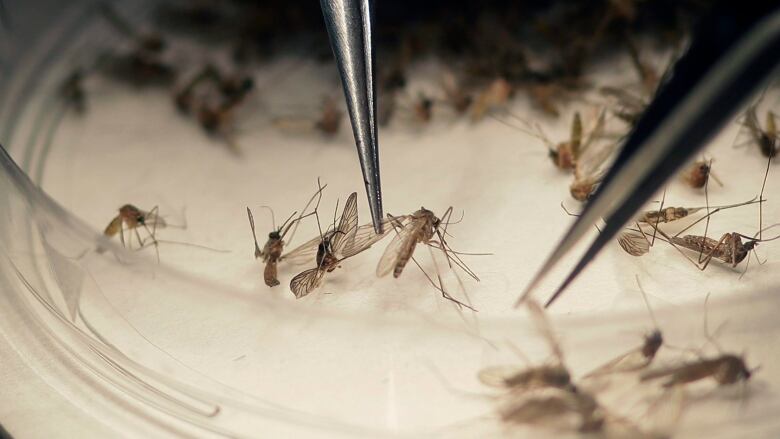Zika virus test under development at University of Alberta
'Every time we go on the net, theres somebody else in the race'

An Edmonton research team is working to develop a handheld device capable of detecting the Zika virus, in an effort to control the spread of the disease.
A team of virologists and the Ingenuity Lab, on the University of Alberta campus, are racing not only against the disease but also against competitors in the field.
"Every time we go on the 'net, there's somebody else in the race," said Tom Hobman, professor of cellular biology and the Canada research chair in RNA viruses and host interactions.
"It's exciting, but it's daunting."
- Zika virus outbreak an emergency, World Health Organization says
- Zika timeline: A look at how the mosquito-borne virus spread
- Zika virus: What Canadian travellers need to know
The technology Hobman expects to use is similar to a pregnancy test, where a sample is placed on a small hand-held strip and after a few minutes shows a positive or negative signal.
The difficulty is finding what will give you the signal, Hobman said.
His team is trying to develop an antibody or some other protein-based material that will react with part of a Zika virus in a blood sample.
It's the basis for many immunological tests for viruses, he said, but currently there areno good antibodies to use while testing for the Zika virus.
"What's going to take most time is developing specific antibodies," he said. "You can't rush that."
A hand-held test would change the way doctors and scientists are fighting the disease.
Currently, researchers use genetic testing to identify the disease, the same as CSI teams use at a crime scene.
The test is relatively easy to do but requires specialized, and therefore expensive, equipment and takes time.
"In countries where you're having tens of thousands of potential Zika infections, the assay centre gets pretty blocked up," he said. "Not good when you have an epidemic going on."
"The urgency is to be able to have a useful test that can give a rapid and accurate diagnosis," he said. "We just don't have that right now."
Hobman hopeshis team will be the first to develop the test.
"One of the challenges is the first to market," he said. "There's tremendous amount of interest in this."
According to the World Health Organization,vaccines to protect against Zika virus are at least 18 months awayfrom large-scale trials.
The virus has been linked to microcephaly, a rare birth defect that causesbabies to be born with unusually small heads and can cause lasting developmental problems.












_(720p).jpg)


 OFFICIAL HD MUSIC VIDEO.jpg)
.jpg)



























































































